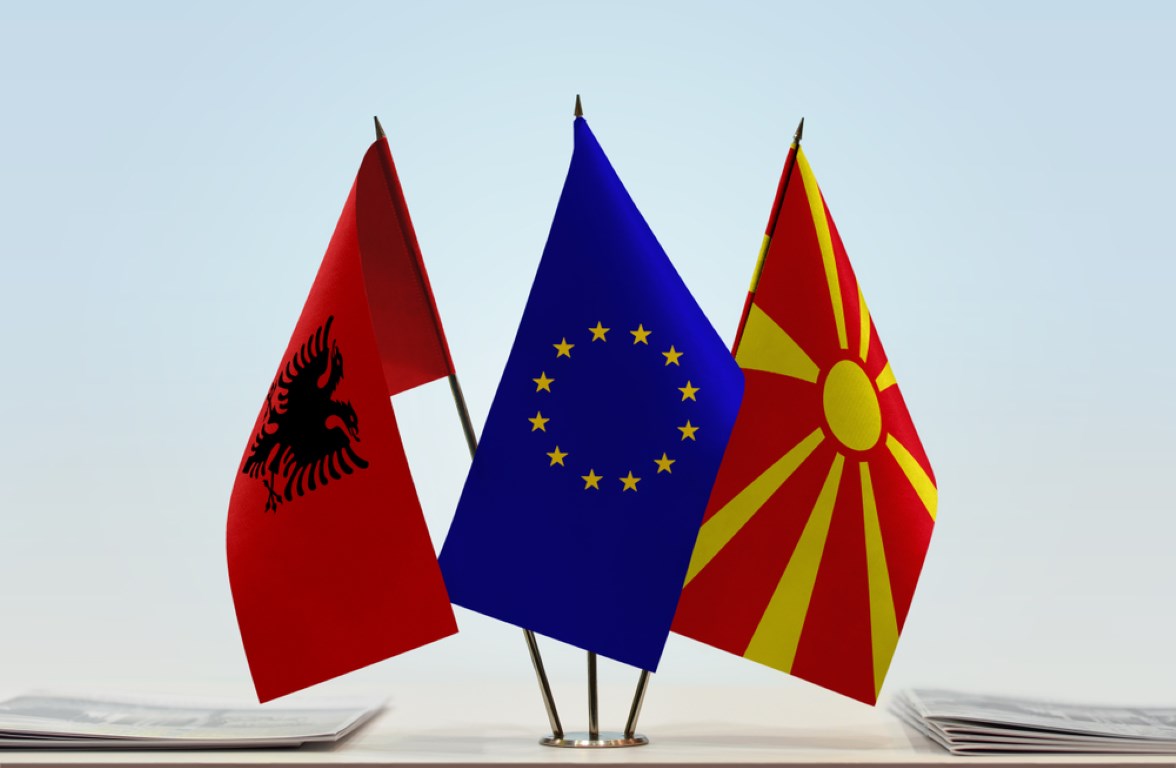Little Hope for Albania and Macedonia
June 28, 2018 | Expert Insights

The European Union is expected to start negotiations for the possible accession of Albania and Macedonia into the bloc.
The Balkan states are required to demonstrate reforms before negotiations begin in 2019.
Background
The European Union was set up with the aim of ending the frequent and bloody wars between neighbours, which culminated in the Second World War. As of 1950, the European Coal and Steel Community (ECSC), founded by Belgium, France, Germany, Italy, Luxembourg and the Netherlands, united European countries economically and politically in order to secure lasting peace. The 1957 Treaty of Rome sought to create European Economic Community (EEC) for a single common market. The European Union was formally established when the Maastricht Treaty—whose main architects were Helmut Kohl and François Mitterrand—came into force in November 1993.
At the dawn of the 21st century, European countries increasingly believed in the strength and unity of the continent, thus, opening up to the idea of admitting new members including the contested state of Kosovo after 2003. However, soon after the collapse of Lehman Brothers, economies toppled like dominoes and the hope for Serbia, Kosovo, and the Western Balkans to join the EU dwindled. After Croatia's EU accession in 2013, there was a halt to the notion of adding new members.
From the beginning of the 2010s, the cohesion of the European Union has been tested by several issues, including a debt crisis in some of the Eurozone countries, increasing migration from the Middle East, and the United Kingdom's withdrawal from the EU.
Greece and Macedonia have been engaged in a 27-year long dispute regarding the official name of Macedonia. This month the foreign ministers of both countries agreed to rename the tiny ex-Yugoslav republic the “Republic of North Macedonia”, resolving a decades-old dispute that had blocked Macedonia’s entry into the EU and NATO.
Analysis
Meeting in Luxembourg on June 26, EU foreign ministers agreed to set out "the path towards opening accession negotiations in June 2019," according to the final draft of their joint statement where they required progress of domestic reforms. Progress should include "further tangible and sustained results" on reforms of the judiciary, security services, and public administration, as well as cracking down on corruption.
Albanian Prime Minister Edi Rama hailed the ministers' decision "after 72 hours of stormy debate" as a victory. "This initial skirmish is won, and now the real battle begins.”
“There will be sweat, tears and many disappointments but we will succeed!” Macedonian Foreign Minister Nikola Dimitrov wrote on Facebook.
Critics continue to question whether the remaining six Western Balkan nonmember states — Serbia, Montenegro, Bosnia-Herzegovina, Kosovo, Macedonia and Albania — will be able to meet the high standards of EU membership. However, if the EU were to consist of countries which comply with the Stability and Growth Pact alongside reduced corruption, freedom of press, protection of minorities and upholding rule of law, it would be left with single digit members.
While Macedonia’s accession was blocked by Greece, France and Netherlands have opposed accession of Albania to appease growing right-wing populists who believe there is increasing East European migration. The move to begin negotiations only in 2019, with the eventual accession only by 2025, will push the two states towards Pro-Russian or Pro-Turkish forces in the region. France’s claims for internal reforms are baseless as there are at least 6 years before any formal enlargement of the bloc.
NATO Secretary General Jens Stoltenberg said the U.S.-led alliance was likely to approve membership talks with Macedonia at a summit in July. Albania is already part of NATO and membership has proven to be a platform for joining the EU.
When it comes to the outlier states, if the EU does not cement lasting relationships, others will: China with infrastructure projects, Russia and Turkey in the energy sector, Saudi Arabia and Qatar with the export of a Wahhabism, a puritanical understanding of Islam that has little in common with the Muslim traditions in the Balkans.
Moreover, from a geo-strategic point of view, the Western Balkans provide a shield of defence. For countries like Germany, Italy and Greece who are struggling with the influx of migrants, the Western Balkans can host more reception centres. An EU-Albania asylum deal is expected to keep German Chancellor Angela Merkel in power.
"If the EU doesn't come to us," a common joke in the region goes, "we'll take the bus.”
Counterpoint
Albania and Macedonia are plagued by domestic social and economic problems which may spillover into the rest of Europe. Moreover, if they aren’t given membership soon, individuals in both countries may be forced to find discreet or illegal ways into Europe in search of brighter futures.
Assessment
Our assessment is that there is dwindling hope for progress on accession negotiations till 2025. We believe that the Balkans are strategically significant and could decide the future of the continent in the face of the growing migrant influx. We feel that Albania and Macedonia should nevertheless begin reforms to foster stable domestic and international relations in order to have fruitful negotiations in 2019.








Comments